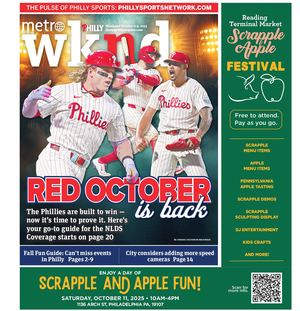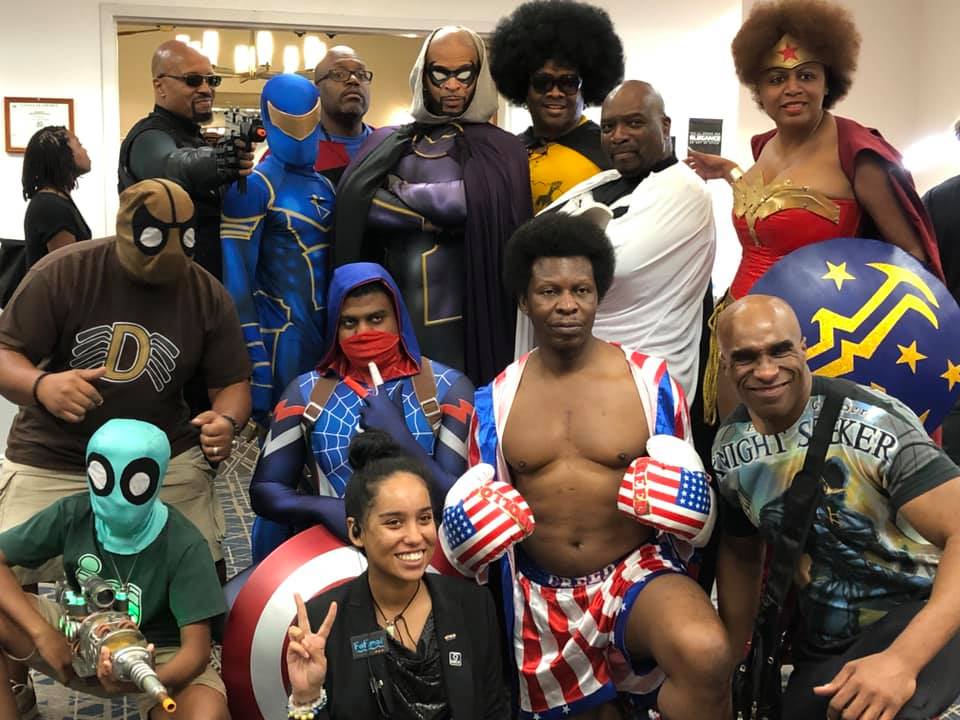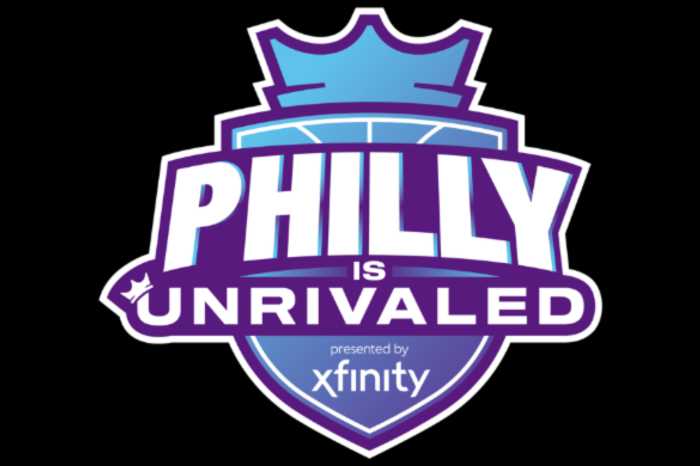When Eric M. Cooper grew up in Trenton, New Jersey, he didn’t dream about sports or fantasize about super heroes. For Cooper—the writer-creator of Black adventure comics such as ‘Knight Seeker’ and the CEO of the Black Label ComiCon—space was the place, the final frontier.
And in returning to his Black Label ComiCon—a self-made, self-run convention coming to Philadelphia this Saturday, Aug. 14, at the Westin Hotel on S. 17th Street—that same universe finds room for the legend of Black Wall Street, the 1921 Tulsa Race Massacre of Black entrepreneurs, Cooper’s latest interplanetary action-adventure, Greenville Triangle, and his sci-fi laced travels to Tulsa in its heyday.
“I didn’t start life inspired by comic heroes, but, rather ‘Star Trek,’ ‘Terminator’ and ‘Predator,’” says Cooper about coming up creatively. “Watching ‘Terminator,’ wondering why he couldn’t die, and seeing his all-metal body engulfed in flames was the scariest thing ever; but it intrigued me.”
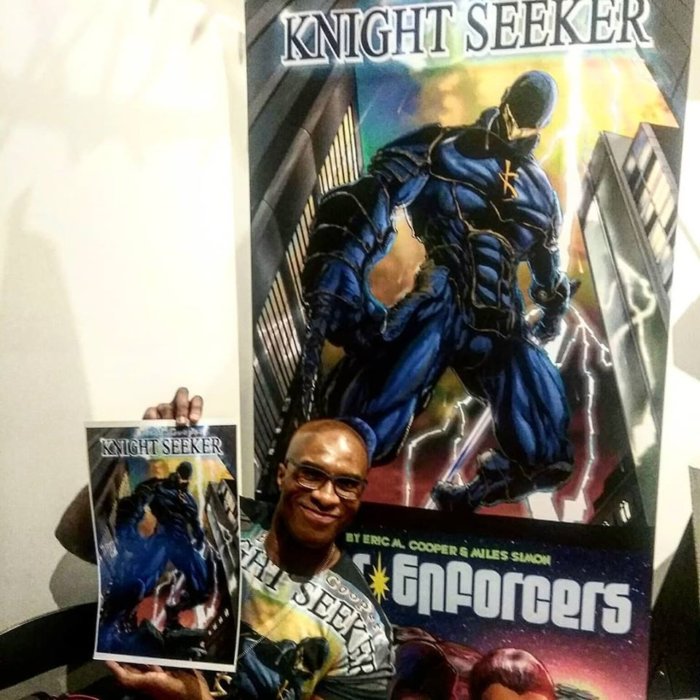
Intrigue turned into action by high school, and Cooper forever had a “space station in his head,” with technicolor planets and interplanetary adventurers whizzing by at warp speed.
Along with performing promotional events for Marvel Comics, and doing SpiderMan routines at ComicCon while still in college—he was dismissed after he took off his mask, “I don’t think people were ready for a Black SpiderMan”— Cooper created his first comic creation/novelization, ‘Knight Seeker.’ Still his most beloved personae, Knight Seeker is a true Black hero in blue spandex, a man-machine equal parts menacing galactic hunter, time lord and technological wizard with superhuman abilities.
Not only did Cooper do his own thing beyond the confines of the Marvel Universe and other mainstream houses as a character and writer; he published his own comix. “I did my own thing,” says Cooper of releasing ‘Knight Seeker’ novels starting in 2005, with three books following in their wake. “I’ve been expanding ever since.”
Cooper’s latest expansion is his most dramatic and socially relevant – Greenville Triangle and its history of Black Wall Street and the Tulsa, Oklahoma Race Massacre that decimated a town of wealthy, self-made Black entrepreneurs and their families.
“My artists and I went to Tulsa and learned all that we could, which was fascinating,” says the author-publisher. “My first ‘Knight Seeker’ books were about my quest to find myself as a person. As I did that, I learned more about Black history and religion, things people don’t know if they’re so involved in fantasy and sci-fi. So I dove in to Black Wall Street. Like the people who ran Black Wall Street, I am a Black entrepreneur.
“From there, I began to flesh out my own world, took on the tragedy of the massacre, but went at it differently – as if the town had never been bothered or touched by outsiders, and allowed to flourish. As time goes on, however, it begins to destroy itself from the inside, rather than the outside.”
The currency of Black entrepreneurs is at the heart of Saturday’s second iteration of the Black Label ComiCon, the first one occurring in 2019 with the original date for 2020 having to move due to COVID. With that, and a year of #BLM activism, tragedy and social outrage behind him, Cooper says the world at large is ready to take on a new universe of ethnic/POC comix characters.
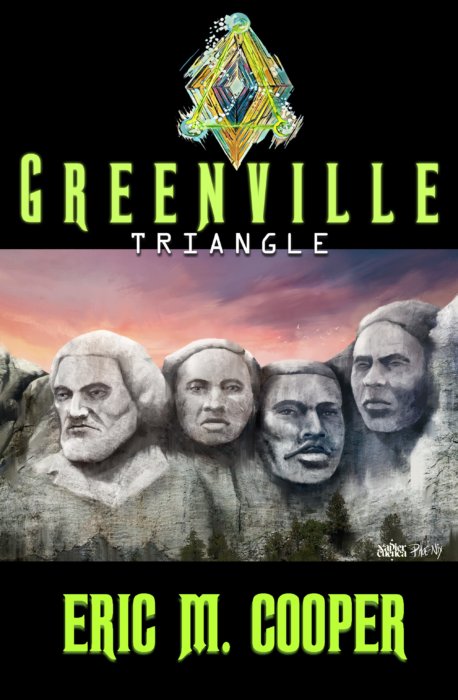
“Plus, with Black Label, I wanted to show that independent creators of color don’t need the big publishing companies. We can do things for ourselves. I like to forge new swords, different and independent from any other swords. You should have your own characters and storyline to support you and what you’re doing,” says Cooper.
Respected for his ability to do just that, while pushing other Black and Hispanic creators to do their own thing, and hawk their own content, Cooper’s Black Label ComiCon was born, then born again in 2021 with a slew of new POC writers and artists making their own characters and forging their own paths, their own swords.
Cooper acknowledges that some Black comix artists and writers want to talk about what’s going on in the wake of #BLM, “subjects such as poverty, police violence, drugs,” he says. “Others want to talk about the reaction. I have always said that if you are going to talk about something, do it in a smart way – keep the action there to hold people’s attention – and make sure that people walk away with something new and meaningful that they have learned. Something they can learn about themselves in the end.”
“We need a network of people with the same mindset, that also have individual properties,” says Cooper. “Our culture is vast, and it’s time to get out there and show people what we have.”
For information or to purchase tickets, visit blacklabelcomicon.com
